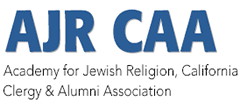Rabbi Yitzchok Adlerstein: Vayeitze What Did Yaakov Ask For?
Rabbi Adlerstein questions what Yaakov was actually asking for, when he asks God to guard him. In the bikat kohanim, the brachah is presented before the shemirah, or guarding. Yaakov uses the reverse of this order, when he says “If G-d will be with me, will guard me on this way that I am going; [if He] will give me bread to eat and clothes to wear, and I return in peace to my father’s house, and Hashem will be Elokim to me…”.











